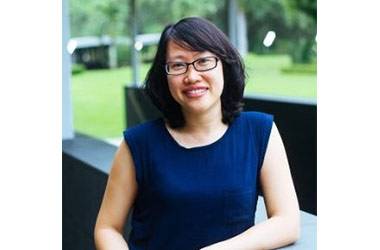Wittenborg Online News!
Research: How Well are Students with Learning Difficulties Supported at Dutch Universities?
Research: How Well are Students with Learning Difficulties Supported at Dutch Universities?
Research: How Well are Students with Learning Difficulties Supported at Dutch Universities?
https://www.wittenborg.eu/research-how-well-are-students-learning-difficulties-supported-dutch-universities.htm
Wittenborg MBA Graduate Looks at Extent of Inclusion at Dutch Universities
To what extent are Dutch universities equipped to support students with learning difficulties? This is one of the key questions Wittenborg MBA graduate Hien Nguyen examined as part of her final graduation assignment. The scope of her research included 11 universities and universities of applied sciences in the Netherlands where she conducted interviews with people who work in the management of support services at the different institutions.
Nguyen was a senior student advisor at RMIT University, Vietnam, before coming to the Netherlands to do an MBA in Education Management at Wittenborg University of Applied Sciences.
Her findings point to the critical role international laws and regulations play in the support services system, the importance of collaboration and communication across internal stakeholders and the difference in service quality provided by different stakeholders. "The research also found that, while aligning with the international regulations in practice, there is a current trend towards pro-activeness in the support systems of these institutions," she writes.
Inclusive education has been the focus of education in the 21st century, as emphasised in the UN's 2030 Agenda for Sustainable Development. Also, in the Netherlands more and more attention is given to the concept of diversity and inclusiveness in education. In fact, Wittenborg itself has built its reputation on three fundamental pillars: internationalisation, diversity & ethics.
The facilities supporting students with learning difficulties that Nguyen has found at Dutch universities include quiet zones, financial support, extra support during examinations, extra study support to deal with stress, anxiety, time management as well as peer support programmes. These facilities and services allow students to seek support from different stakeholders, such as academic advisors and student counsellors (as a first point of contact), also doctors and psychologists as well as technical teams.
Nguyen pointed out that two of the universities she visited did not offer any special support for students with learning difficulties, but managers were confident that they could handle students' cases on an individual basis.
She also found that there is a shift from physical to digital support services in an effort to create equal accessibility, accelerated by the COVID-19 pandemic, which forced many universities to go online or hybrid. For instance, all the workshops, training sessions and social networking events, as well as lecturing and consultations, have largely moved online.
Concerns were raised about unclear guidelines in government policies, leaving it to the universities to interpret them, leading to some confusion about implementation. However, there were consistencies between the two parties' vision of institutional culture: maintaining a multi-cultural and open mindset, creating a welcoming environment where every student has equal opportunities to develop their minds and talents.
Participants in the research highlighted the importance of creating a supportive and caring environment. The common vision among all the universities was that every student who is capable of learning has the right to develop their talents and, therefore, universities need to offer what students require for their studies.
WUP 20/4/2021
by Anesca Smith
©WUAS Press
523 words